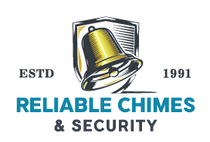5 Precautionary Measures for Business Security
Are you a business owner or someone responsible with the protection of company assets? Here are 5 precautionary measures to step up your business security.
Keyword(s): Business Security
All computers are vulnerable to a cyber attack!
Did you know 60% of small businesses impacted by a cyber attack are unable to recover and that the average cost to respond to a cyber attack can be upwards of $1,882,670?
Evidently, a cyber attack or any other security breach can cause a lot of damage to your business. To make sure you're protected, we're sharing 5 precautionary measures for business security. Read on!
1) Software protection
It's important to have a firewall, anti-malware/spyware, and anti-virus protection on all computers. Although it sounds like common sense, 1 in 10 PC users and 75% of Mac users are not protected.
The best choice for a business is to use a paid version that can run on many machines. Make sure to update these programs to catch all the latest malware that can infect your devices.
2) Password encryption
Every employee should use a password or PIN to get into secure devices.
You should become a password manager and create unique passwords for each user. There is software that can help in these endeavors.
Two-step authentication is a second layer of security that can stop potential hackers. Make sure your business has many two-step barriers, especially for business and private e-mail systems.
Encrypt hard drives with disk volume encryption support. This makes the files on your computer hard to access in case of theft. Windows and Mac include free disk volume encryption support programs.
You should encrypt your e-mails and the documents you send. Password protection, secure cloud services, and Microsoft Office add-ons can protect attachments.
3) Go on lockdown
It's crucial to have your business and devices under lockdown.
Devices should be secure or put away as an extra precautionary measure. Rack mount servers and fixtures, such as a cable lock, can make a computer almost impossible to move.
Handhelds should be locked in a safe or carried with the employee. Motion sensing alarms are a great way to keep track of handhelds.
Lock your server room doors and have restricted access policies in place. Ensure there's an authentication system to keep the room secure.
Security cameras can keep a watchful eye over the premises. Cameras can also send notifications in case it detects unwarranted motion.
Track what goes on in your network. Delete old user accounts, limit employee file access, and if needed remove drives. Some companies can provide monitoring services.
Make sure to shred discarded documents.
4) Don't skip the backups
Backups are essential because ransomware can take your files hostage. While you can't always secure your servers, you can ensure you don't lose critical data.
Always make sure you backup your data even to save yourself from a disk drive failure. Routinely check that your backups are safe and in order.
It's a good idea to keep your backups off-site and secure.
5) Train your staff to boost business security
Your first line of defense is always your staff. Teach your employees about the importance of security so they can have a sense of ownership and responsibility.
Make sure to keep your precautionary plans updated. It's always better to be safe than sorry.
For your business security needs, feel free to contact Reliable Chimes to find out how we can protect you. We're only a phone call or email away!
